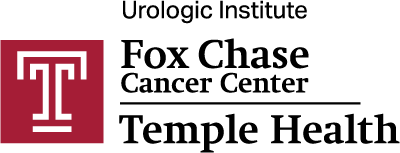

Early, accurate detection of disease is a key factor to having better outcomes from most medical treatments. This rings especially true with lung cancer, which is the leading cause of cancer-related death in the U.S. while disproportionately affecting Black and Brown communities. These statistics can be attributed both to prevalence–lung cancer is one of the most common cancers; in addition to the delayed nature of symptoms–most people don’t experience symptoms until a late stage.
Physician leaders from the Temple Lung Center and Fox Chase Cancer Center joined forces on a vision to increase early detection and help our most vulnerable community members access important cancer screenings.
By establishing the Temple Healthy Chest Initiative, Temple Lung Center and Fox Chase Cancer Center worked to promote lung cancer screenings through accessible education and outreach, especially among groups that have higher incidence rates–but the Initiative didn’t stop there.
Removing Silos to Advance the Standard of Care
Recently, a federal task force updated guidelines to make more people eligible for low-dose CT scan for lung cancer screening. While these scans do detect lung cancer, it is more likely that they reveal other even more common conditions, like COPD, emphysema, or heart disease.
When a scan intended for one condition detects another, findings are noted, and patients are usually responsible for pursuing further care, navigating the often confusing healthcare environment. The Healthy Chest Initiative saw this barrier to care and designated nurse navigators to fill the void.
Changing the Course From Diagnosis to Treatment
Melissa Liverpool, RN is a nurse navigator for the Temple Healthy Chest Initiative.
Once someone is screened, Liverpool and other nurse navigators work one-on-one with patients to demystify results and follow-up. Depending on results, they connect people with specialists across clinical departments such as cardiology and nephrology, virtual and in-person support groups, smoking cessation programs, and other services.
Nurse navigators help get patients to the right care quickly.
And, fortunately, when lung cancer and other conditions of the chest are detected early, there are more treatment options and much better outcomes.

